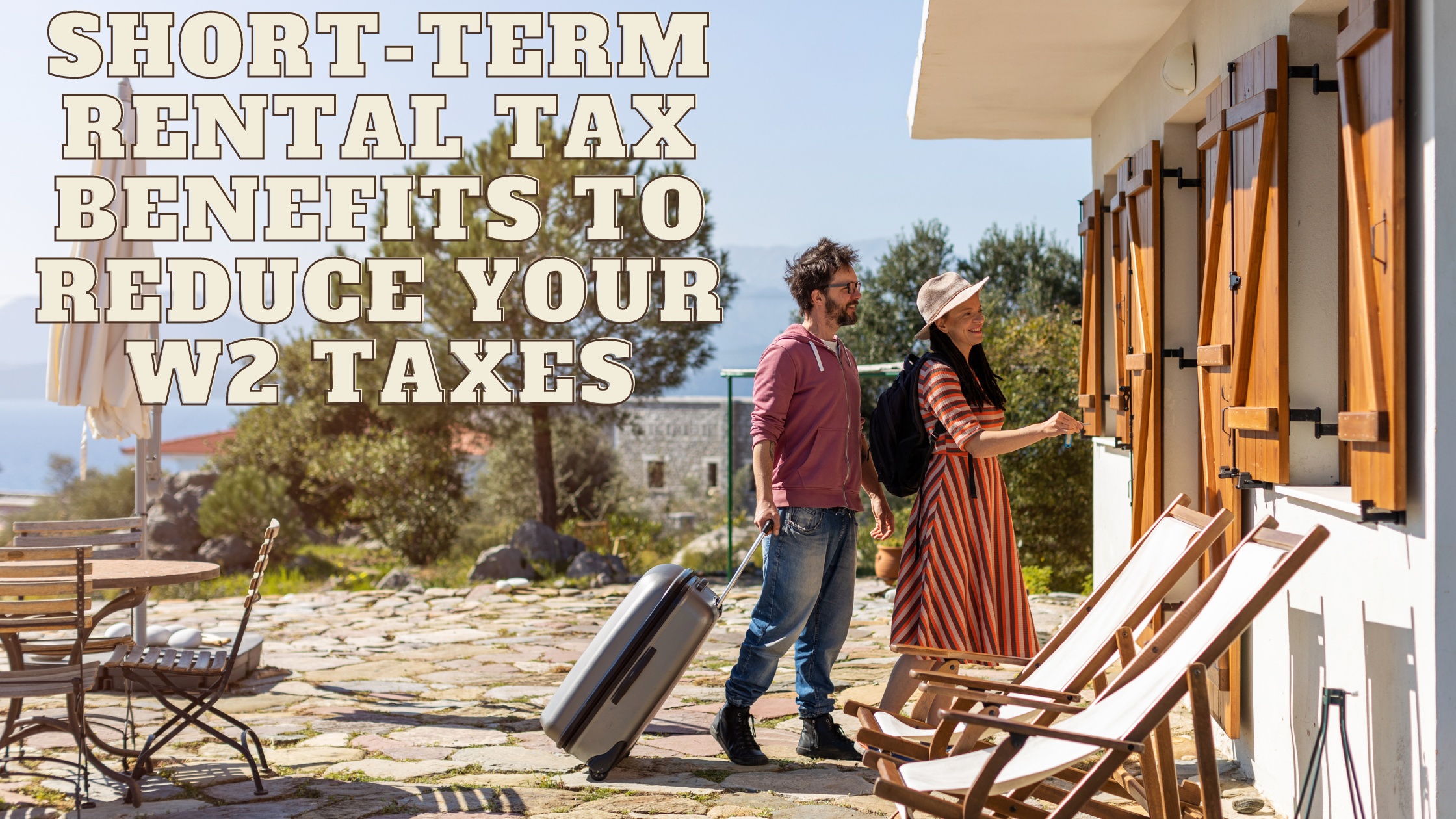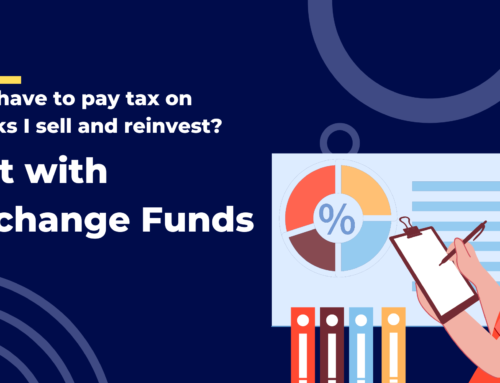There are very few things that you as a high W2 income earner can do to reduce your tax bill. However, there are short-term rental tax benefits that give you access to a tax loophole that can meaningfully make an impact on your taxes. This Airbnb tax loophole (or VRBO) utilizes what the IRS calls material participation and what many professional real estate investors utilize called cost segregation.
Usually, an investment property offers what is called passive income. Annual tax deductions on an investment property cannot exceed that year’s passive income. This makes investment properties very tax efficient but doesn’t do much to reduce your regular w2 income. However, by following specific vacation rental tax rules you can convert this excess loss into deductions that can reduce your w2 taxes.
To start taking advantage of these Airbnb tax benefits you need to know five things.
- What rules do you need to follow to take full advantage of this tax loophole?
- What qualifies as a short-term rental?
- What is material participation?
- How does cost segregation work?
- How to utilize bonus depreciation?
Please keep in mind the tax rules and strategies discussed here are explained at a high level. To take full advantage of this strategy you should consult your tax advisor to get a better understanding of if and how you can benefit from this strategy. If you are looking for help with just Airbnb tax reduction rules we are not a good fit and you need to specifically look for a tax advisor that is familiar with these rules.
Specific consideration to make this work.
There are a variety of ways to get access to these Airbnb tax deductions. However, to simplify, here are some of the key rules to consider.
- The average stay of a customer is less than 7 days at a time.
- You and/or your spouse work 100 hours or more a year maintaining this property by managing the bookings, cleaning, etc.
- No one else spends more time working on the property than you or your spouse.
- The property is held exclusively for rental purposes. You do not use it as a personal vacation house.
- You hire a specialty firm to complete a cost segregation study. This allows you to depreciate parts of the property at a faster rate.
- A cost segregation study is expensive. So the property needs to be priced accordingly to make it worth it.
- You take bonus depreciation on components of the property that are part of the cost segregation study.
Now that you know the rough outline let’s dive into the details of these vacation rental tax rules.
What is a short-term rental?
The key to this tax loophole is to change how the IRS recognizes your real estate income. Specifically, by avoiding activity that categorizes income as “rental activity”. When income is recognized as “rental activity” it is categorized as passive income and prevents excess losses offsetting your w2 income.
The Internal Revenue Code you are looking for specifically is Reg. Section 1.469-1T(e)(3)(ii)(A). Which states that an average period of customer use of fewer than 7 days is excluded from the definition of “rental activity”.
Material Participation
To receive the short-term rental tax benefits the IRS requires you or your spouse to be a material participant. There are two components of material participation you need to consider: time and activity.
The IRS qualifies material participation as any one of the following:
- Participation in the activity for more than 500 hours.
- Participation in the activity was practically all the participation even for those who don’t
hold interest in the property (cleaners, plumbers, contractors). - Participated in the activity for more than 100 hours and at least more than others who
don’t hold an interest in the property. - Activity is a significant participation activity, and you participate in all significant
participation activities for more than 500 hours.
a. Significant participation activity – participate more than 100 hours but didn’t
materially participate. - Materially participate in the activity for any 5 of the previous 10 taxable years.
- Materially participation for 3 years (can be non-consecutive) in personal service activity
(no income produced) for the previous tax years. - “Regular, continuous, and substantial” participation during the year
Arguably, the easiest criterion to meet is #3. This means that for this Airbnb tax loophole to work you need to have worked on the rental property for more than 100 hours in one year and that no one else worked more than you. As an example, you could have participated for 102 hours and the cleaning staff participated for 101 hours. However, it can’t be the other way around.
In order to meet the definition of participation there are a few things you could do.
- Working with an architect, city, or utility company to develop the property.
- Hiring and managing contractors.
- The process of acquiring the property. (A gray area with many CPAs.)
- Managing the interactions with customers, such as addressing customer needs and managing the booking. (The one that is most likely achievable.)
The list is more extensive, and interpretations are up to you and your tax advisor. However, the one thing that definitely does not meet the definition of participation is paying someone else to manage the property.
Cost Segregation
To get some short-term rental tax benefits you could stop at material participation. However, if you want the full benefit of short-term rental tax deductions you will want to apply a cost segregation study and bonus depreciation.
A cost segregation study is done to reclassify components of your short-term rental between the structure of the building that has a 27.5-year depreciation schedule and other components that have 5, 7, and 15-year depreciation schedules. Usually about 20-30% of your property value. This allows you to increase the depreciation deduction in the early years of your property ownership, further reducing the tax burden.
A cost segregation study is not cheap nor is it easy. It needs to be done by a professional engineering firm, the standard set by the IRS are high, and it can cost upwards of $15,000.
Bonus Depreciation
The full benefit of cost segregation really shines through the process of bonus depreciation. Bonus depreciation allows you to take the entire depreciation schedule/amount in one year. This provides for a larger on-paper tax loss that can significantly improve your cash flow for the year.
There are extensive rules provided by the IRS to help you understand depreciation, bonus depreciation, and how it applies to this Airbnb tax loophole. The key points that you need to know are that the property needs to be used in a business or income-producing activity and it needs to have a depreciation period of 20 years or less.
By running a cost segregation study, you will be able to classify parts of your property as having 5, 7, and 15-year depreciation schedules. This is why the cost segregation study is key to utilizing bonus depreciation.
Unfortunately, your time to use bonus depreciation is running out quickly. After 2023 you will be able to use only 60% of the bonus depreciation amount. Furthermore, it is important to note that as a non-real estate professional, you must wait a full year of property ownership to fully leverage the cost segregation and bonus depreciation deduction.
If you are applying a cost segregation study and bonus depreciation on an older building you will want to complete IRS Form 3115.
Example of the short term rental tax benefits in action.
Here is an example of how someone would take full advantage of this Airbnb tax loophole.
Shay has found a multifamily property in Miami that she believes would make an excellent Airbnb investment. The property is worth $2,000,000 and she expects to receive annual rent of $200,000 between the three units. She finances the purchase with a standard 30-year fixed mortgage at 5.5% for a total loan of $1,600,000.
To meet short-rental rules Shay sets the max length of the stay for 6 days. To meet the participation rule she decides to manage the Airbnb and VRBO listing. She is communicating with all the guests. She is also purchasing and replenishing all the supplies. Shay also hires a cleaning crew to come and restock the house between each stay. She spends about 110 hours a year on the management and the cleaning crew spends about 52 hours.
After the first year, Shay runs a cost depreciation study that costs her $15,000. About 30% of her property, which consists of things such as appliances, A/C, and other items fall under the accelerated depreciation schedules. As soon as she conducts the study, in the same tax year, she executes bonus depreciation at 60%. The total depreciation of 30% of a $2,000,000 property is $600,000. She is able to take 60% of that or $360,000. The remainder she will need to depreciate over the appropriate schedules.
In the year of bonus depreciation, Shay incurs the following expenses:
- $88,000 of mortgage interest expenses.
- $5,000 of utilities including internet and cable.
- $10,000 of supplies were bought for the property.
- About $48,000 of depreciation on the structural component of her property.
- $360,000 of bonus depreciation on the cost-segregated components of her property.
Her total expenses are $511,000. Her rental income for the year is $200,000. She has a loss of $311,000.
Shay is a highly compensated W2 tech executive. Her all-in compensation, including RSUs, is $2,000,000. Through this short-term rental tax deduction, Shay can save about $115,000 on her tax bill. ($311,000 x 37% Top Marginal Tax Bracket = $115,000)
This is a very aggressive example used to make a point. Consult with your tax advisor before utilizing this type of strategy. There is always a risk of an audit by the IRS. While this is within the letter of the law, even if you successfully go through an audit, it can be a very stressful and costly experience.
Summary
To receive these Airbnb tax deductions requires following multiple complex tax rules, keeping accurate documentation, and working with a tax advisor that is familiar with the rules and comfortable filing your taxes in line with the rules. You should not attempt this purely based on this article or on your own.
However, these Airbnb tax benefits are not worth it if you can’t find a solid investment property with a good return. If you want to learn other ways to save money on taxes as a high W2 income earner check out our comprehensive guide on all the tax strategies available.
We would like to give special recognition to Rohan Samtani, our intern, for helping us research the complex tax rules included in this blog. Rohan is a brilliant student and one of the most diligent people we have ever met. Rohan is passionate about investment management and the world of finance. We had the pleasure of meeting Rohan through our involvement with Junior Achievement. A global non-profit with a focus on educating kids K-12 on financial literacy, entrepreneurship, and encouraging women in the STEM industries. You can learn more about Junior Achievement HERE.






